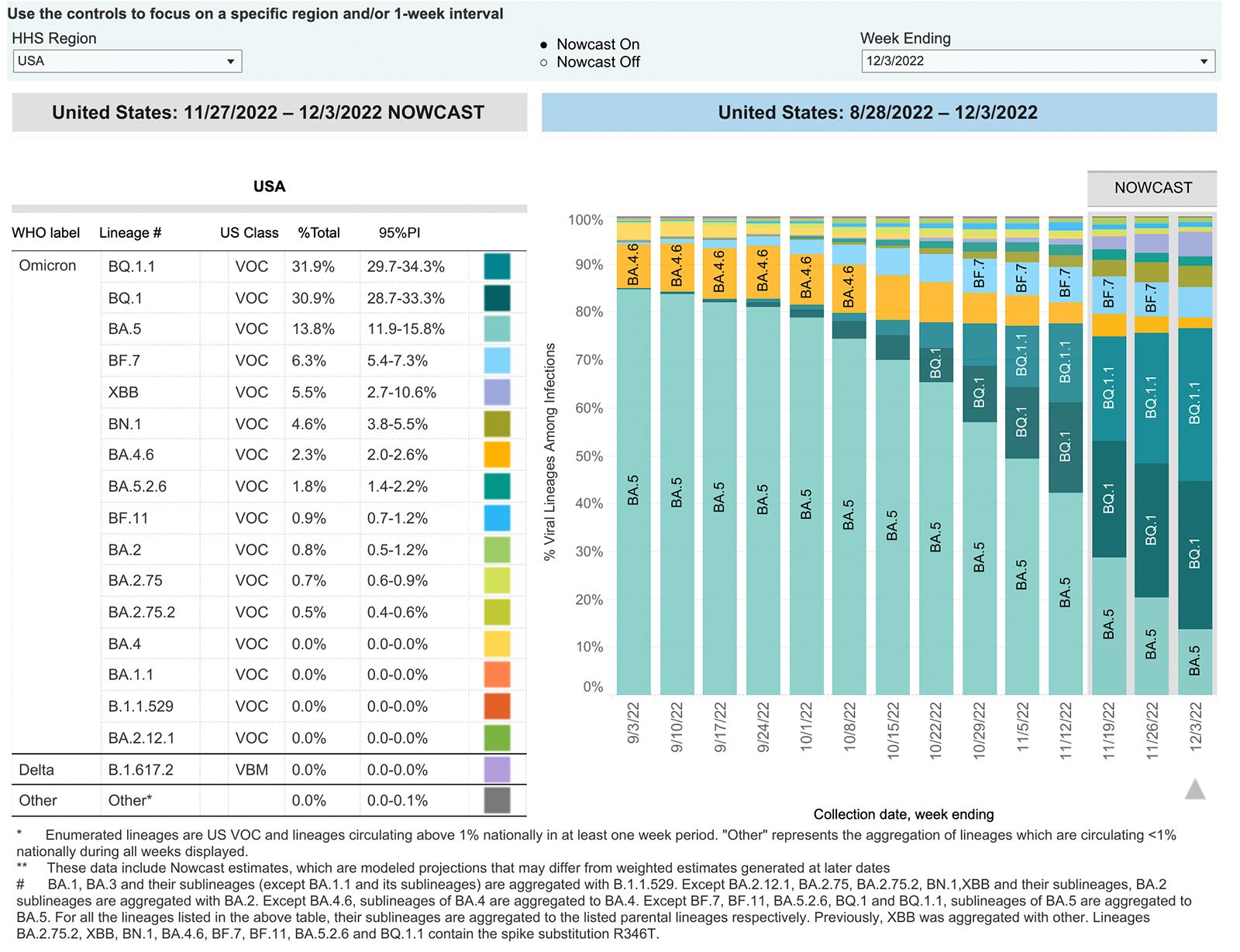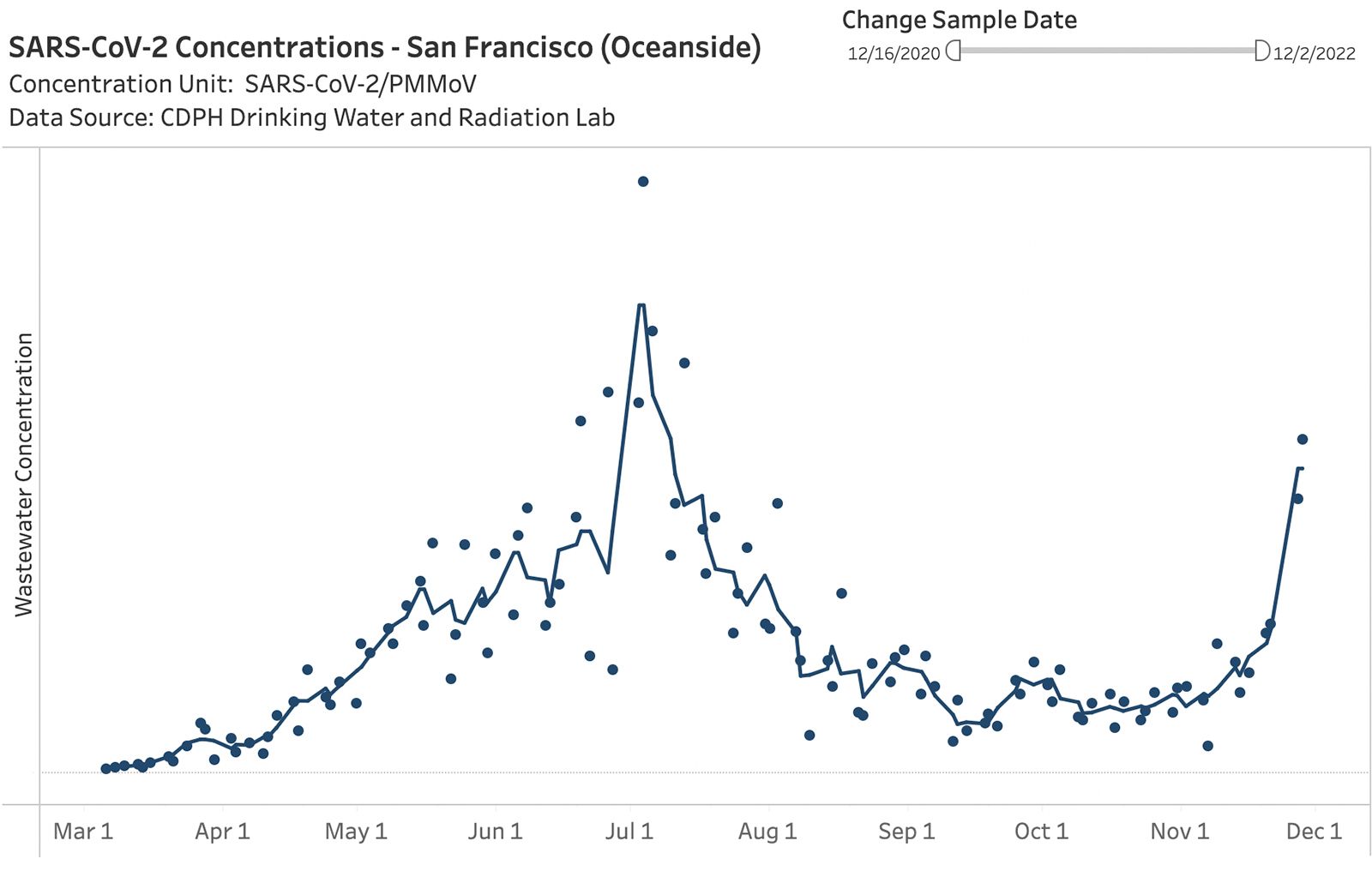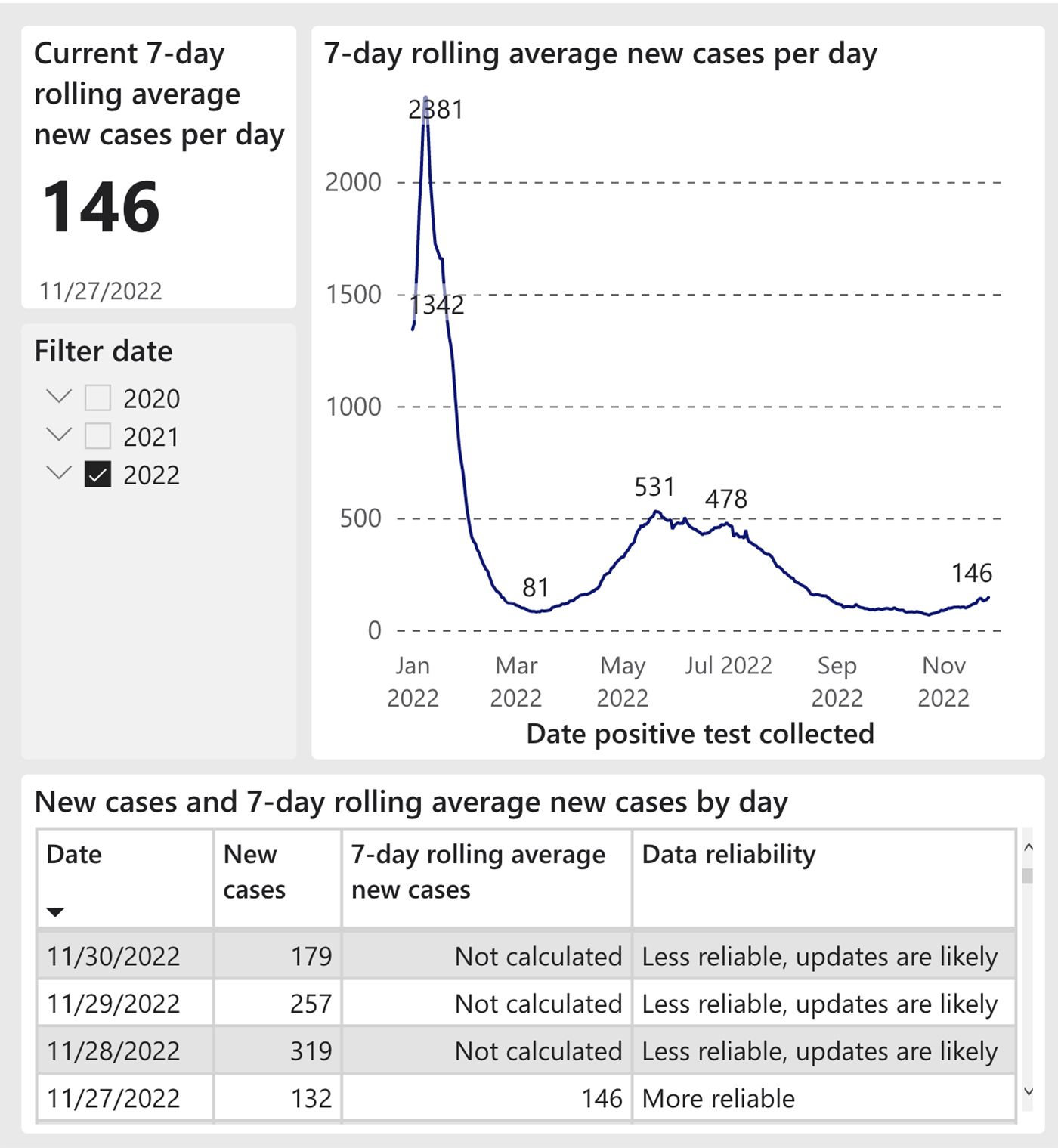Unfortunately we are in the midst of a third-in-a-row December surge in COVID-19 in this endless pandemic. And while some may argue we should not be calling it a pandemic anymore — or some may just not want to worry about it at this late date — it's happening, and for the sake of the elderly and immunocompromised we can't be apathetic.
The triple-demic that experts were warning of months ago is taking shape in hospitals across California as it is elsewhere, with a COVID surge and new variants coinciding with a spike in influenza and RSV. For the week ending November 26, California was in the highest category possible for flu cases compared to other states, and in the same week, and for a couple of weeks prior, COVID cases have been on the rise in the Bay Area — both by official case counts, which are undercounts, and via wastewater surveillance.
"We are doing a pathetic job of protecting seniors (and age 50+) from severe Covid in California," writes physician Dr. Eric Topol on Twitter, looking at the latest hospitalization numbers.
The most severe cases are still primarily be occurring among older people — but remember in the early pandemic when we prioritized the welfare of the elderly? The latest variants, , are extremely immune-evasive which means they are causing infections even in the recently infected and boosted. Nobody's going to be forced to mask up if they don't want to at this point, but bear all of this in mind when traveling through airports and on planes to see elder relatives in the coming weeks. Mask and test like their lives depended on it! Tell everyone you know to boost and get their flu shots!
A few charts:
Flu data out today. Holy crap. pic.twitter.com/vkDnmgWPJz
— Katelyn Jetelina (@dr_kkjetelina) December 2, 2022
We are doing a pathetic job of protecting seniors (and age 50+) from severe Covid in California
— Eric Topol (@EricTopol) December 2, 2022
Rapid ascent now passing BA.5 wave peak
Get a boost. pic.twitter.com/n1IZkNBnmz
The Centers for Disease Control estimates that, as of the week ending December 3, rapidly spreading new variants BQ.1, BQ.1.1, and XBB made up a combined 69% of total cases in the U.S., doubling every couple of weeks.

Experts continue to express both worry and uncertainty about whether or not these rapidly multiplying variants will cause a surge in cases similar to the one we saw last December and January with the initial Omicron wave — but all signs are pointing to yes. This is a shift from early November when there was still reason for some cautious optimism, though the general immunity level of the population is likely to still make this wave milder — and hopefully less deadly — than those in the past.
UCSF's Dr. Bob Wachter warned on Friday that the asymptomatic test-positivity of patients at UCSF — which he has used as an imperfect but general way of assessing virus circulation in the population — more than doubled over the last month, from around 2% to around 5%. And he extrapolates that to mean that in a room full of 10 people, there's a 40% chance that one person is COVID-positive and doesn't know it.
Ruh roh (at least in SF): asymptomatic test positivity rate @ucsfhospitals now 5% (was ~2% last month). While not a perfect sample, implies that ~1 in 20 people in SF who feels well would test pos. for Covid. In a crowd of 10: 40% odds ≥ one is pos. Airplane w/ 150: 99.9% odds. pic.twitter.com/EqhLEJRT5W
— Bob Wachter (@Bob_Wachter) December 2, 2022
And on the wastewater surveillance front, state data from San Francisco's Oceanside sewer shed shows virus counts spiking in the city and on their way to potentially surpassing the BA.5 wave from this past summer.

At this point, the wastewater data is the clearest indication we have of COVID spreading quickly in the city, given that most people are testing at home these days unless they have testing requirements for work, travel, or school, or they're in a hospital.
Still, official numbers have been rising for several weeks after hitting a low in October, both in San Francisco and in the greater Bay Area. Still, the official counts have not approached the summer surge.


In other concerning signs of a wave upon us, Zuni Cafe was closed all of last week to address a COVID outbreak on its staff. And SF Playhouse had to postpone some performances of its new show, As You Like It, due to a similar outbreak in the cast.
Hopefully we won't see the wave of closures and impacts to local restaurants like we saw last winter, but don't be surprised if you hear of a few more.
Related: Next Omicron Subvariant Arrives In Bay Area; Not Enough People Are Getting Updated Boosters

